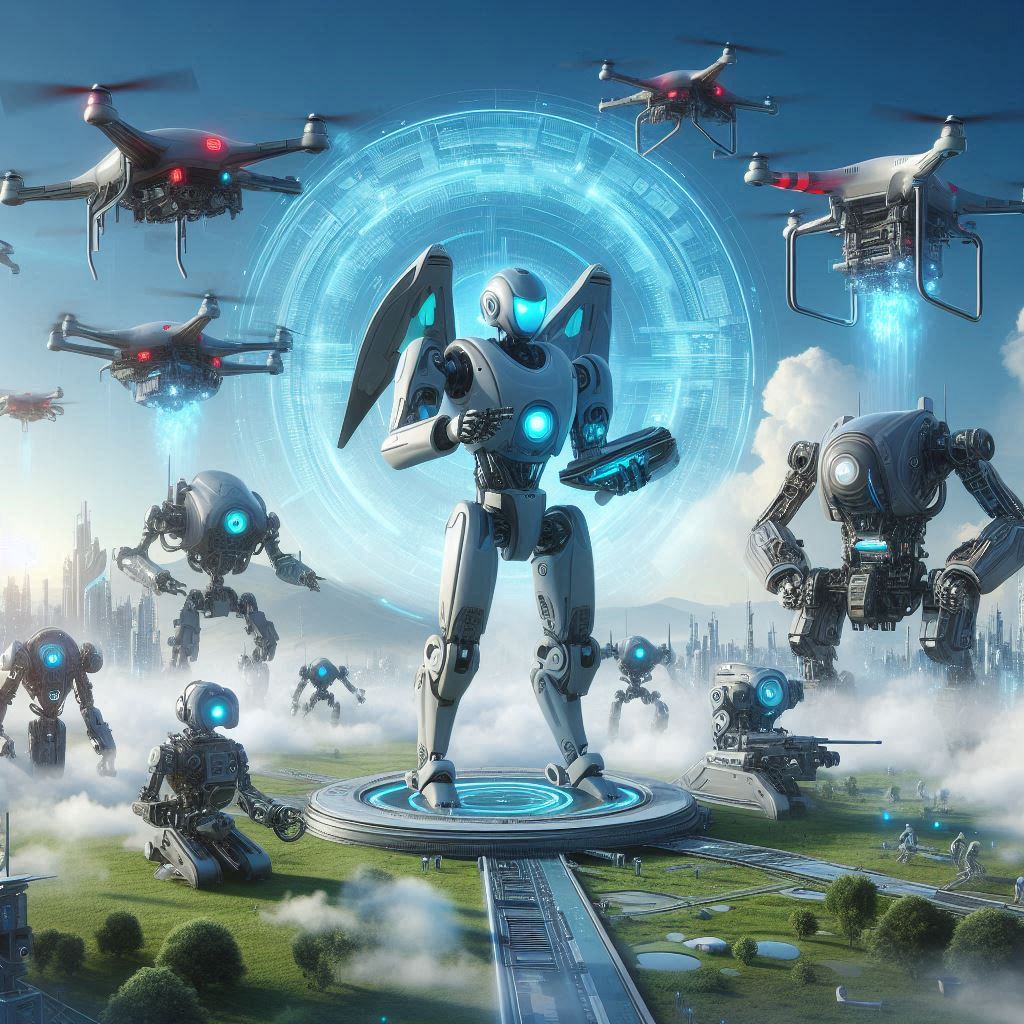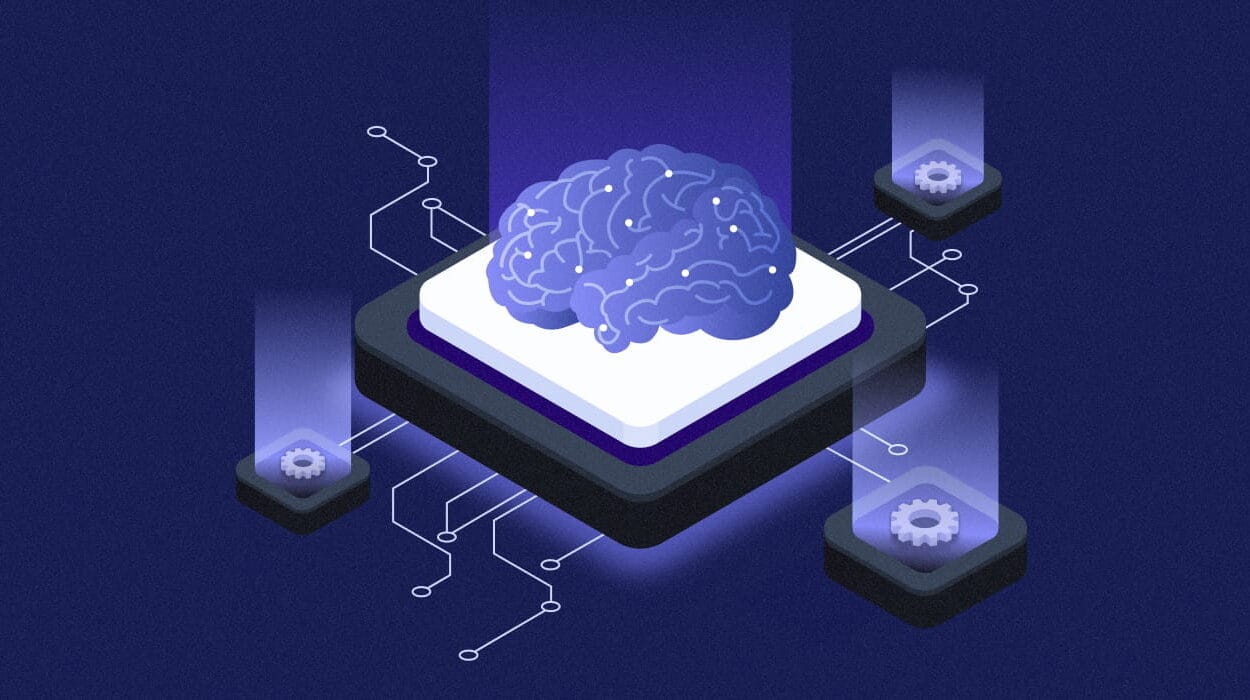The world of warfare has always been in a state of constant evolution. From the primitive tools used by early humans to the advanced weaponry of the modern-day military, technology has played a crucial role in shaping the outcomes of battles and the strategies employed by nations. However, in the 21st century, we are witnessing the dawn of a new era of warfare, where artificial intelligence (AI) is poised to become one of the most transformative and potentially dangerous elements in combat. The integration of AI into military operations raises profound questions about the nature of warfare, the ethical implications, and the future of conflict itself.
This article explores the role of AI in warfare, examining its current and potential applications, the ethical dilemmas it presents, and what the future of combat might look like as we move into an age dominated by intelligent machines.
The Rise of Artificial Intelligence in Military Applications
AI, once the stuff of science fiction, has rapidly evolved into a technological force that is already beginning to influence warfare in ways that were once unimaginable. At its core, AI refers to machines or systems that are capable of performing tasks that typically require human intelligence, such as decision-making, problem-solving, pattern recognition, and learning from experience.
In the context of warfare, AI’s integration can be seen in several key areas, including autonomous weapons systems, military strategy and decision-making, logistics, and cybersecurity. Military forces around the world are investing heavily in AI research and development, and many are already incorporating AI into their operations. The United States, China, Russia, and several other nations are at the forefront of this technological revolution, aiming to leverage AI to gain a strategic advantage over their adversaries.
One of the most significant changes brought about by AI is the development of autonomous systems. These systems are capable of operating independently, often without the need for human intervention or control. Autonomous drones, for example, are already being used in surveillance, reconnaissance, and even combat operations. These machines can fly for long periods, gather intelligence, and even launch strikes on enemy targets with remarkable precision.
However, the most advanced autonomous systems being developed go beyond drones. The military is now exploring the potential of autonomous ground vehicles, submarines, and even ships. These systems are equipped with AI that allows them to navigate complex environments, make real-time decisions, and adapt to changing circumstances in the field. The implications of these technologies are profound, as they promise to reduce the need for human soldiers in dangerous combat situations, potentially saving lives while also increasing the efficiency and effectiveness of military operations.
AI-Powered Weaponry: The Dawn of Autonomous Combat
One of the most controversial aspects of AI in warfare is its potential to power autonomous weapons systems. These weapons are designed to operate without human oversight, using AI algorithms to select and engage targets on their own. While this technology is still in its infancy, the potential for fully autonomous weapons raises significant concerns about accountability, ethics, and the very nature of war.
Autonomous weapons could range from drones that identify and strike targets to robots that perform ground-based combat missions. These systems could be programmed to recognize specific targets, such as enemy combatants or military infrastructure, and execute attacks without requiring human input. Proponents argue that autonomous weapons could increase the precision and speed of military operations, potentially reducing civilian casualties and collateral damage. However, critics warn that the use of such weapons could lead to unintended escalation, as machines may make decisions based on algorithms that are not fully understood or controllable by humans.
Moreover, the prospect of machines making life-and-death decisions without human intervention raises significant ethical concerns. Who would be held accountable if an autonomous weapon mistakenly targets civilians? What if an AI system malfunctions or is hacked by an adversary, causing unintended consequences? These are questions that the global community must address before fully embracing AI-powered weaponry.
The possibility of AI-powered autonomous combat is also likely to lead to a new arms race. Just as nations competed to develop nuclear weapons during the Cold War, they are now racing to develop the most advanced autonomous weapon systems. This competition could lead to a dangerous cycle where the fear of falling behind drives nations to rapidly deploy AI-driven systems without fully understanding their implications.
AI and Military Strategy: Revolutionizing Warfare
While autonomous weapons systems are perhaps the most visible manifestation of AI in warfare, the technology is also revolutionizing military strategy and decision-making. AI has the potential to transform how battles are fought, how conflicts are planned, and how military commanders make critical decisions.
One of the key areas where AI can make a difference is in the realm of data analysis. Modern warfare generates vast amounts of data from a variety of sources, including satellite imagery, reconnaissance drones, intelligence reports, and battlefield sensors. Sorting through this data and extracting actionable insights is a daunting task, but AI can help to make sense of it all.
AI-powered systems can analyze vast amounts of data in real time, identifying patterns and trends that might be missed by human analysts. For example, AI could help military commanders identify enemy movements, predict future actions, or assess the effectiveness of military strategies. This could give military leaders a significant advantage in planning and executing operations, allowing them to anticipate their adversaries’ moves and respond more effectively.
Moreover, AI can assist in tactical decision-making on the battlefield. With the help of AI, military commanders could receive real-time recommendations based on data collected from various sources. These recommendations could cover everything from troop movements to the deployment of resources to the selection of targets. In theory, this would allow commanders to make faster, more informed decisions, potentially gaining an edge over their adversaries.
However, the reliance on AI in military strategy also presents risks. AI systems are only as good as the data they are trained on, and they may not always be able to account for the complexities and unpredictability of human behavior. Additionally, there is a danger that military leaders could become overly reliant on AI, trusting algorithms over their own judgment. In the event of a malfunction or error, the consequences could be catastrophic.
AI in Cyber Warfare: A New Front in Combat
Another area where AI is playing an increasingly important role is in the realm of cyber warfare. As nations become more dependent on digital infrastructure, the potential for cyber attacks to disrupt critical systems has grown exponentially. AI is being used to both defend against and conduct cyber warfare, creating a new dimension to modern combat.
AI-powered cybersecurity systems can monitor networks in real time, identifying potential threats and responding to attacks much faster than human operators could. These systems can learn from past attacks, constantly improving their ability to detect and prevent new threats. In the future, AI could even be used to predict and prevent cyber attacks before they occur, further strengthening national security.
On the offensive side, AI can be used to launch sophisticated cyber attacks. By using machine learning algorithms, cyber attackers can develop more advanced and harder-to-detect methods of infiltrating networks and systems. These attacks could target critical infrastructure, such as power grids, financial systems, or military communications, potentially causing widespread disruption.
The use of AI in cyber warfare raises new challenges for military forces. As cyber threats become more complex, defending against them will require an entirely new approach. Traditional military strategies may no longer be sufficient to counter the growing threat of cyber attacks. Moreover, the anonymity of cyber warfare means that attribution of attacks can be difficult, making it harder to hold perpetrators accountable.
The Ethical Dilemmas of AI in Warfare
As with any new technology, the rise of AI in warfare brings with it a host of ethical dilemmas. The most pressing of these concerns is the question of accountability. In a conflict where autonomous weapons and AI-driven systems are deployed, who is responsible for the actions of these machines? If an autonomous drone strikes a civilian target, can the military command be held accountable? Or should the blame fall on the engineers who developed the AI system? This is a question that international law has yet to adequately address.
Moreover, the use of AI in warfare raises concerns about the potential for AI systems to be used in ways that violate human rights or international humanitarian law. Autonomous weapons, for example, may not be able to distinguish between combatants and civilians in complex or chaotic environments, leading to unintended harm. Additionally, the increasing reliance on AI in military decision-making could lead to a dehumanization of war, where the complexities of human life are reduced to data points and algorithms.
There is also the risk of AI being used in ways that exacerbate existing inequalities. Countries with more advanced AI capabilities will have a significant advantage over those with less access to this technology. This could create a power imbalance on the global stage, with the most technologically advanced nations wielding even greater influence in international conflicts.
The Future of Combat: A World Dominated by AI?
As AI continues to evolve, it is likely that its role in warfare will only increase. The future of combat could see a shift away from traditional forms of warfare, with battles fought not just by soldiers, but by machines, algorithms, and automated systems. The line between human and machine in the battlefield could blur, as AI systems become more capable of making autonomous decisions and performing combat operations with little to no human involvement.
However, this raises significant questions about the future of conflict itself. Will AI make warfare more efficient and less deadly, or will it escalate the risks of conflict, leading to a new kind of arms race and a world where warfare is driven by machines? The potential for AI to revolutionize warfare is immense, but it is also fraught with dangers.
Ultimately, the future of AI in warfare will depend on the choices that we make today. As nations continue to develop and deploy AI-powered systems, it is essential that we engage in an ongoing dialogue about the ethical implications of these technologies. International agreements and regulations will be necessary to ensure that AI is used responsibly and in a way that minimizes harm.
In conclusion, the integration of AI into warfare is an inevitable reality, one that will reshape the nature of combat in the coming decades. While the technology holds immense promise, it also presents profound challenges that must be addressed before it is fully embraced. As we stand on the brink of this new era, the future of warfare is being rewritten before our eyes. The question now is not whether AI will be a part of warfare, but how we will ensure that it is used in a way that benefits humanity rather than threatening its very existence.






